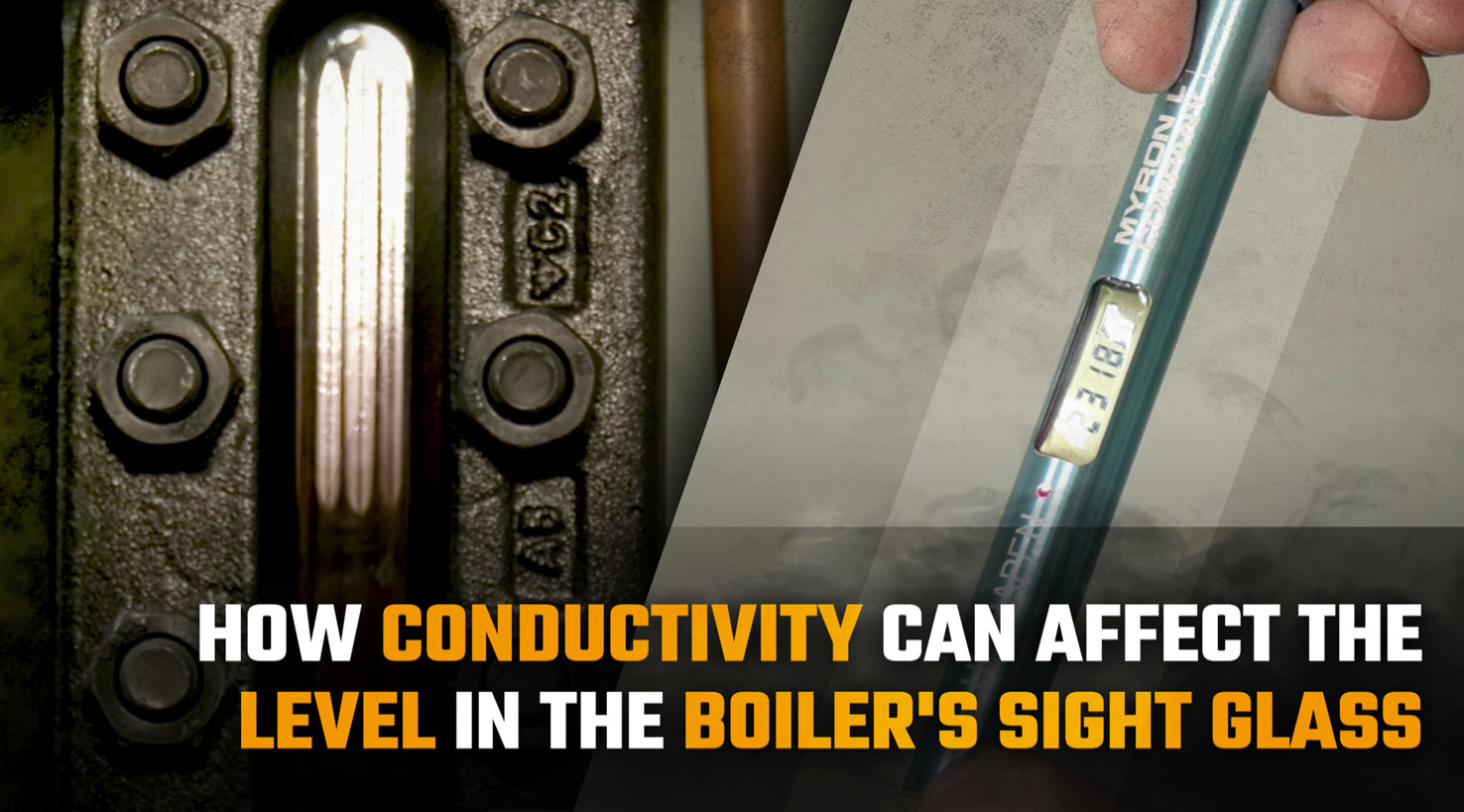CONDUCT YOURSELF PROPERLY
Some boilers run on natural gas. Some run on propane. Others run on oil. But no matter what fuels your boiler, you’ve got electricity going on there, too. That’s what boiler conductivity is all about, in fact: measuring, monitoring, and controlling the water’s ability to transfer a charge. It’s a pretty big deal, too, for a lot of reasons.
CHARGE!
Pure water does not conduct electricity. In fact, it’s an excellent insulator. However, 100% pure water isn’t as common as you think. No matter how clean it may look, there’s always something dissolved in it, down to the tiniest levels. Those dissolved solids are what’s actually conducting electricity. That’s where boiler conductivity comes into play.
Monitoring your boiler’s conductivity is crucial to maintaining efficiency and preserving your boiler’s life. If it isn’t kept in check, it can cause serious damage over time. Not only to your boiler itself, but also to your energy bill; conductivity robs efficiency, increasing your fuel costs over time.
THE SCALE OF INJUSTICE
One of the biggest problems that high conductivity causes is scaling. Once those dissolved solids have enough electricity flowing between them, they start to stick to the boiler’s inner surfaces. It’s not unlike electroplating a piece of metal. As that scale builds up it starts to act as an insulator, reducing the efficiency of the heat transfer between the fireside and waterside. To compensate, the boiler has to use more fuel. That means you’ll be spending more and more over time to keep your boiler at the same output.
TAKE A DEEP BREATH
While oxygen is great for humans, it’s bad for boilers. That’s another reason why it’s so important to monitor conductivity; Increased conductivity releases more oxygen into the boiler tank, and if you’ve ever seen a nail left outside in the street, you’ve seen what oxygen can do to metal. That’s what’s happening inside a boiler with high conductivity; the metal is slowly oxidizing over time, creating corrosion on the metal surfaces. That corrosion weakens the metal, which can result in leaks, cracks, and even explosions (which are all very bad news, especially that last one.)
KEEP YOUR CONDUCTIVITY IN SIGHT
There’s another sinister thing that conductivity can do, and it has to do with your sight glass. Conductivity actually changes the physical properties of the water in a boiler, which makes the steam bubbles resist breaking to release their steam. These longer-lasting bubbles end up appearing as foam sloshing around on the surface of the boiler water. As that foam moves around and the bubbles burst, the pressure in the boiler’s sight glass will fluctuate fairly rapidly. If your sight glass level seems to move up and down at a fairly rapid pace, it’s time to check the conductivity. Or check for an earthquake.
CONDUCT YOURSELF ACCORDINGLY
We’ve established that high conductivity is a bad thing. Unfortunately, it’s also an ongoing thing. Because of the chemical processes that take place as water turns to steam, your boiler water will continue to get more conductive over time. That’s why it’s important to know your conductivity levels through regular monitoring. Fortunately, it’s easy to stay on top of, and easy to control. Modern boilers have sensors built into them to measure conductivity, which means that conductivity levels are one of the parameters that are constantly monitored by the boiler control system. However, conductivity can also be measured with an isolated sample of the boiler water, using a handheld sensor.
The best way to lower conductivity is to simply introduce fresh feedwater into the boiler. But you have to make room first, which means starting with a blowdown. After the blowdown has been performed, new feedwater can be introduced. However, as we all know, operating a boiler is a delicate dance between a lot of factors. Introduce too much new feedwater, and you’ll affect your boiler’s efficiency. If you don’t introduce enough, your conductivity stays high. This is why it’s important to operate a boiler only if you’re properly trained on how all the factors work together.
WATER’S THE MATTER
Keeping your conductivity low means starting with good water. That means water that’s been filtered and, if needed, run through a water softening system. Water that’s too hard will have a lot of dissolved solids, including iron. Those solids will increase scaling and corrosion on their own, but the electricity makes it even worse.
Your water’s pH levels are also extremely important as well. Water that’s too acidic will do even more damage to your waterside and fire tubes than conductivity. Check the pH regularly to ensure that your water is in the sweet spot between acid and base. It’ll make your boiler last longer, and maintain its efficiency. Water quality can also be improved by the addition of water treatment solutions. The right mix of chemicals can keep your conductivity in check, and help your boiler work better, and longer.
If you’re having conductivity problems, WARE is here to help. Our expert technicians will help you with water quality, scaling, or any other issues you’re having. Just let us know how we can help.
